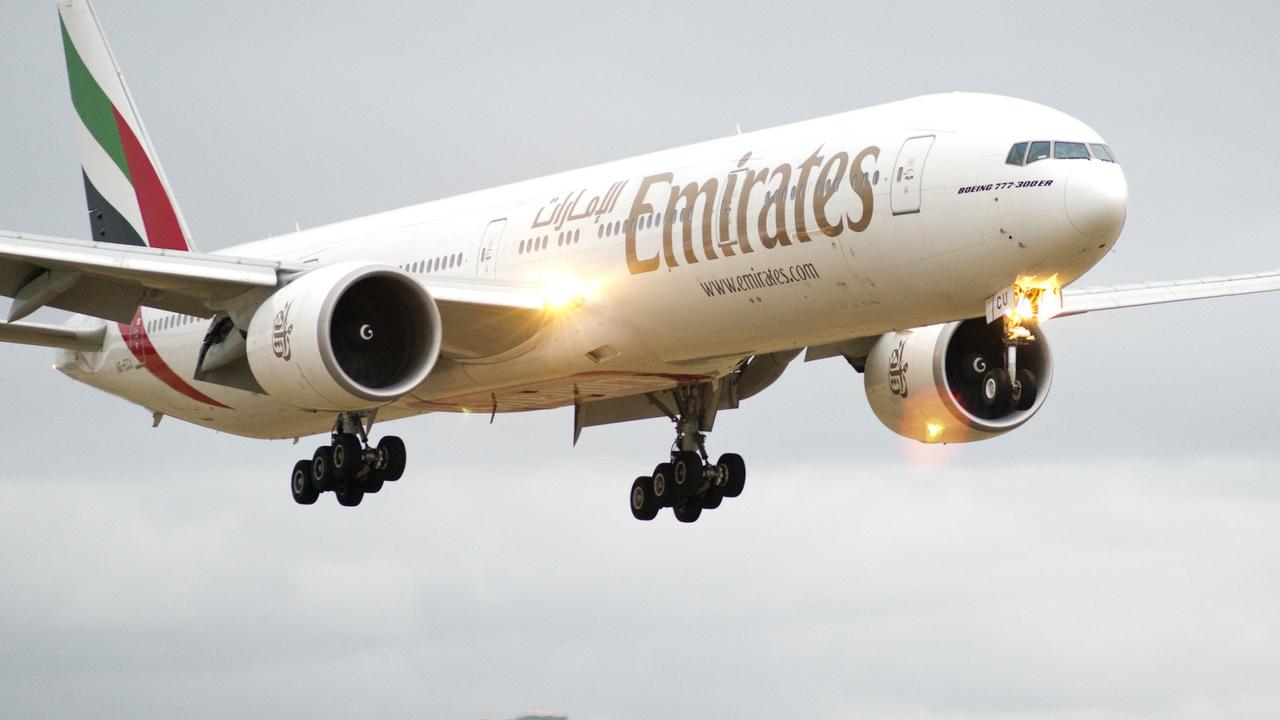Chaos as Uluru reopened for final time to climbers before ban takes hold
The sun is setting on Uluru as rangers officially close the climbing trail for the very last time, with a ban coming into effect tomorrow.
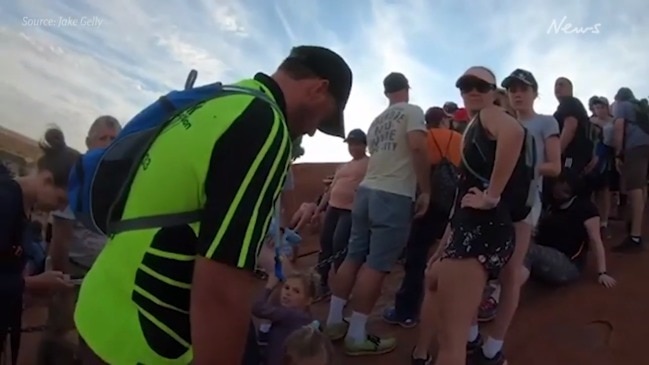
There was a final scramble from visitors hoping to climb Uluru this afternoon before public access to the sacred rock was closed for good.
Park rangers have done a final sweep and the climb is now officially closed.
Form tomorrow, climbing Uluru will be outlawed, exactly 34 years after the land was handed back to traditional owners.
The ban sparked frenzied scenes at the landmark for several weeks, with scores of visitors queuing from dawn.
On Friday morning, wild weather lashing the Red Centre closed the climb, with rangers forced to shut down the chain trail to the summit.
To all those people trying to climb #Uluru today before it closes permanently, who’ve been delayed by strong winds this morning and may miss their chance entirely... I say to you, from the bottom of my heart, sucked-in. pic.twitter.com/XEvW9IYPOg
— Dr Natali Pearson 🧜ðŸ¼â€â™€ï¸ðŸŽ“💦 (@sea_greeny) October 24, 2019
There is a god....strong winds at #Uluru stop disrespectful tourist climb on last ever day. .will they sue god for a refund of their bucket list costs incurred. @ScottMorrisonMP@abcnews #auspol
— .Ashamed to be Australian under LNP Bebe Casey (@1958_BestYear) October 24, 2019
Uluru is closed for climbing because of strong winds. Don't mess with Anangu Tjukurpa.
— Simon Thomsen (@SimonThomsen) October 24, 2019
The climb was scheduled to open at 7am local time, but authorities deemed conditions too dangerous, with winds lashing the western face of the rock.
But after reassessing the climb, rangers reopened the chain trail to frantic tourists who desperately ran towards the rock in a final bid to reach the top.
While long lines of visitors tried to scale the landmark before the ban, each had ignored a single sign at the base of the rock.
The sign, which says “Please don’t climb”, details why stepping foot on Uluru disrespects the Traditional Owner.
“Uluru is sacred in our culture,” the sign continued. “It is a place of great knowledge. Under our traditional law climbing is not permitted.
“As custodians, we are responsible for your safety and behaviour. Too many people do not listen to our message. Too many people have died or been hurt causing great sadness. We worry about you and we worry about your family.”
A curse will fall on all of them. They will remember how they defiled this sacred place until they die & history will record their contempt for Aboriginal culture https://t.co/0FbT1qINEl
— 💧Marcia Langton 🯠(@marcialangton) October 24, 2019
“That sign has been there for years — unfortunately mostly ignored,” one person said.
“It’s on my bucket list to one day visit Uluru but climbing it has never been on the list. I can emphasise with the traditional owners because I know I would be upset at people climbing over my church,” another added.
Indigenous academic Marcia Langton declared that those who climbed Uluru had “defiled this sacred place” and that a “curse will fall on all of them”.
Ms Langton’s words were contained in a Twitter message responding to a video posted yesterday showing hundreds of people lining up to do the climb at 7am.
The climb at Uluru has been opened for the final time â¦@10NewsFirstâ© pic.twitter.com/BA1PWzZZo4
— Brett Clappis (@BrettClappis) October 25, 2019
The controversial ban is the result of a unanimous vote by the board of the Uluru-Kata Tjuta National Park in 2017.
Uluru is considered to be a place of spiritual significance by its indigenous custodians, the Anangu people, who have pleaded with tourists not to climb it for many years.
RELATED: How much you’ll be fined for Uluru climb
RELATED: ‘Dangerous’ sight at top of Uluru
Every person who trods across Uluru's surface today will pass this sign: pic.twitter.com/GHLzlgybTp
— Rachael Hocking (@Hocking_Rachael) October 25, 2019
There had been a sharp spike in the number of people arriving to hike up the monolith, with a number of photos showing lengthy lines up the trail going viral.
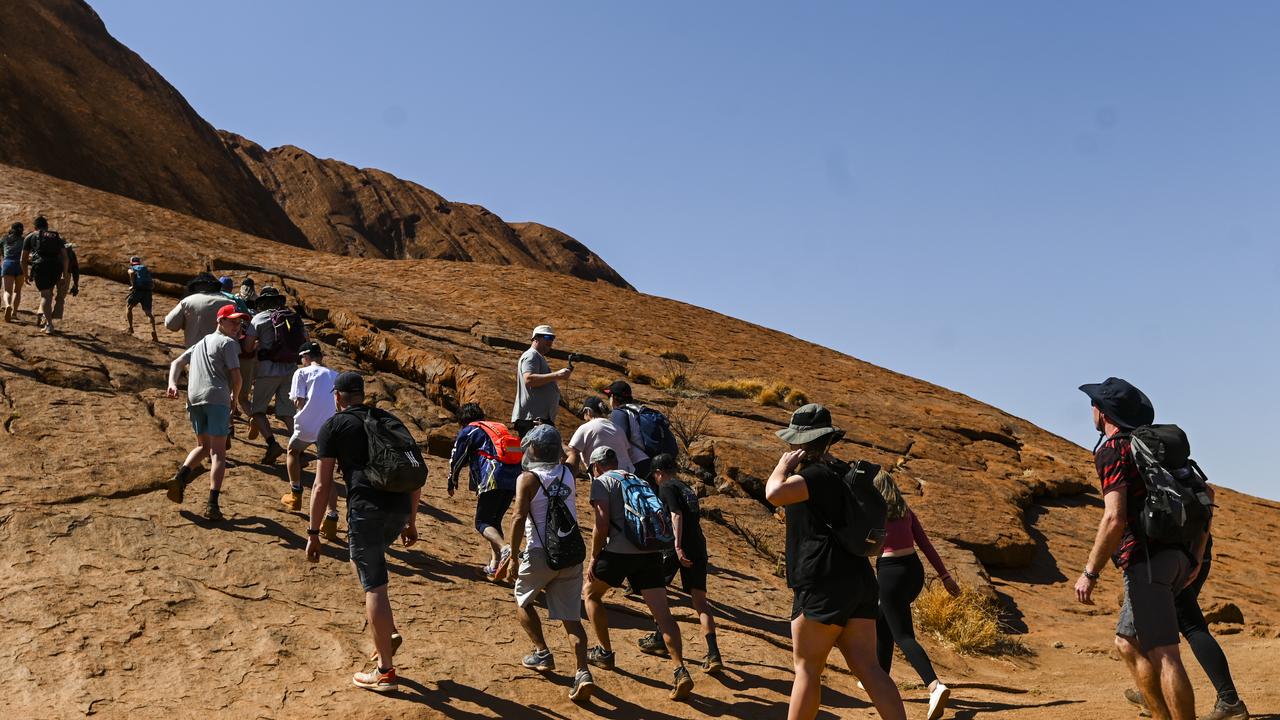
On Thursday, footage emerged showing furious climbers lash out at a couple who tried to skip the long line and climb the rock without using the safety chain.
However, the defiant pair continued to scale the rock, and skip the enormous queue of climbers clinging on to the chain that travelled up the sacred landmark.
“You can’t push in front of us,” one man yells out to the couple. “On the chain!”
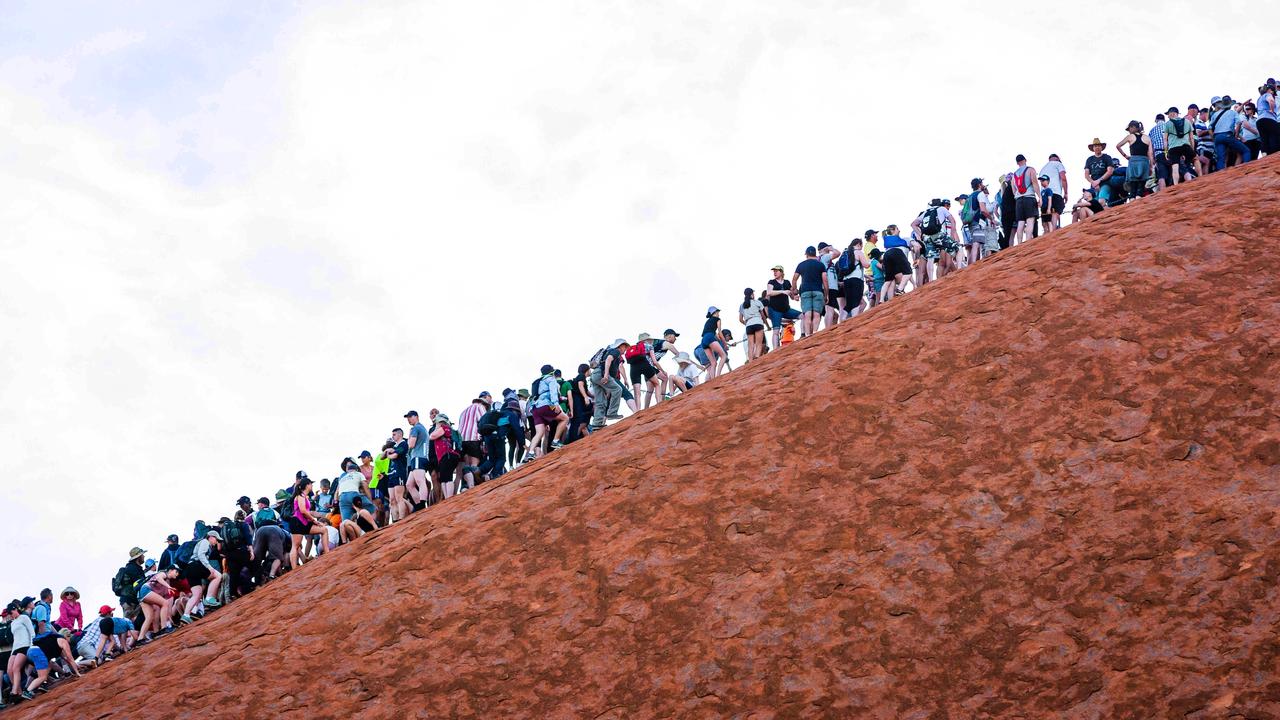
Like many Australians who know the landmark simply as “the Rock,” Jeff Lis regards the climb as a birthright. The 52-year-oldand his lifelong friend Stefan Gangur, 51, drove from Melbourne on the southeast coast to Australia’s so-called Red Center.
“I’ve got some pretty strong views on it personally. I was born in Australia, it is part of my culture and ancestry as much as anyone else’s,” Lis, who is not an indigenous Australian, said at Uluru.
Sammy Wilson, who chaired the board that banned the climb, described the pending prohibition as a cause for celebration. Wilson is a member of the Anangu tribe who are Uluru’s traditional owners.
“If I travel to another country and there is a sacred site, an area of restricted access, I don’t enter or climb it, I respect it,” Wilson said. “It is the same here for Anangu. We welcome tourists here. We are not stopping tourism, just this activity.”

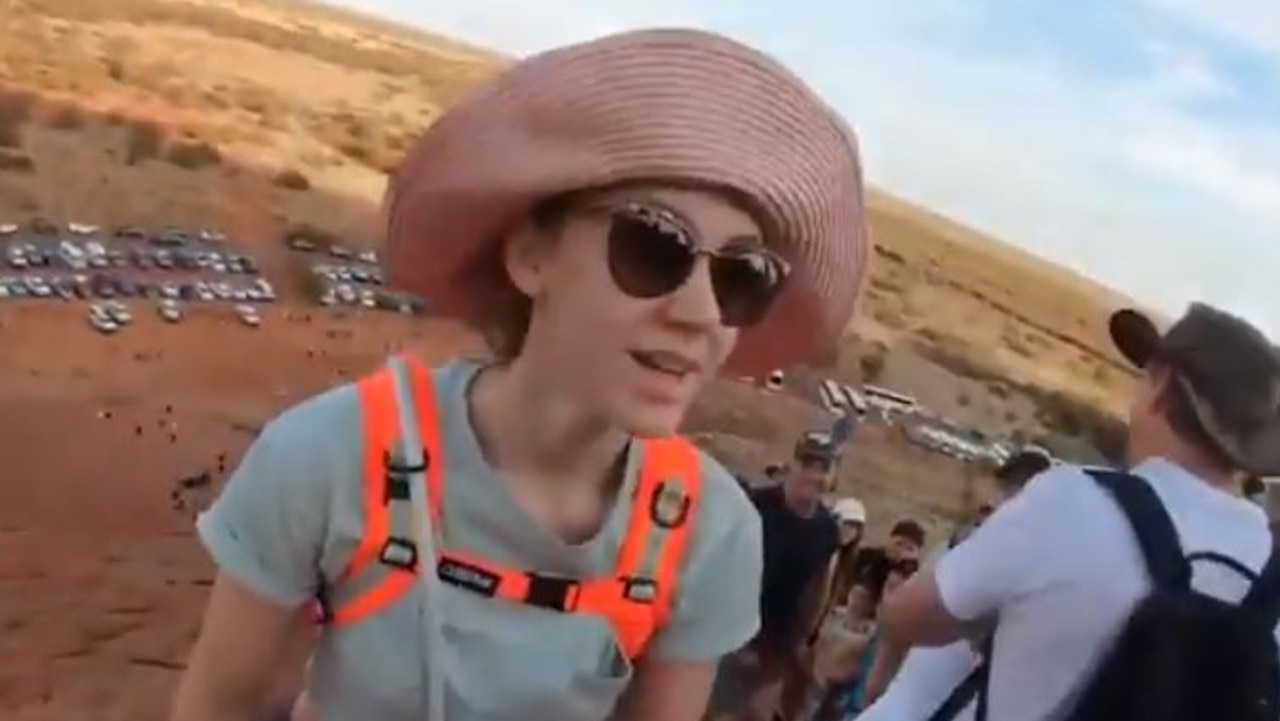
According to the BBC, only 16 per cent of visitors to Uluru actually climbed it in 2017, when the upcoming ban was first announced, but that number has surged as the deadline drew nearer.
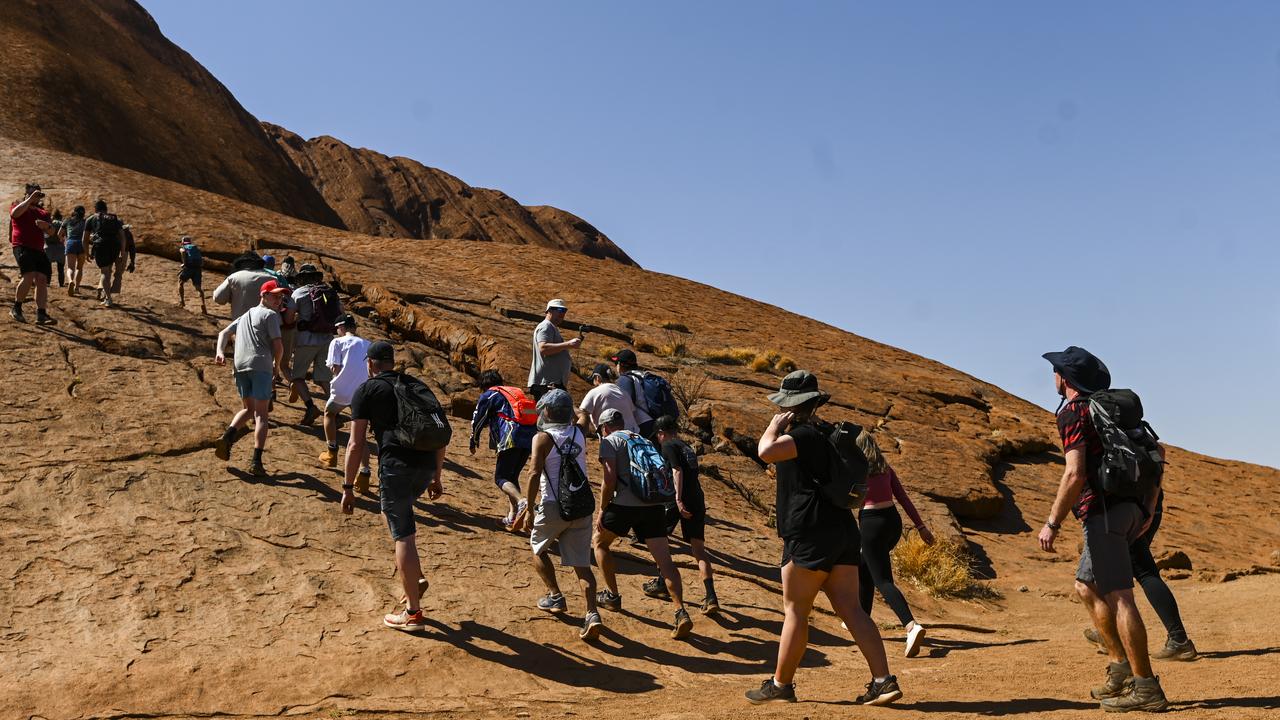
In fact, the ABC reports there were an extra 10,000 visitors to Uluru-Kata Tjuta National Park per month in the six months leading up to the climb’s closure.
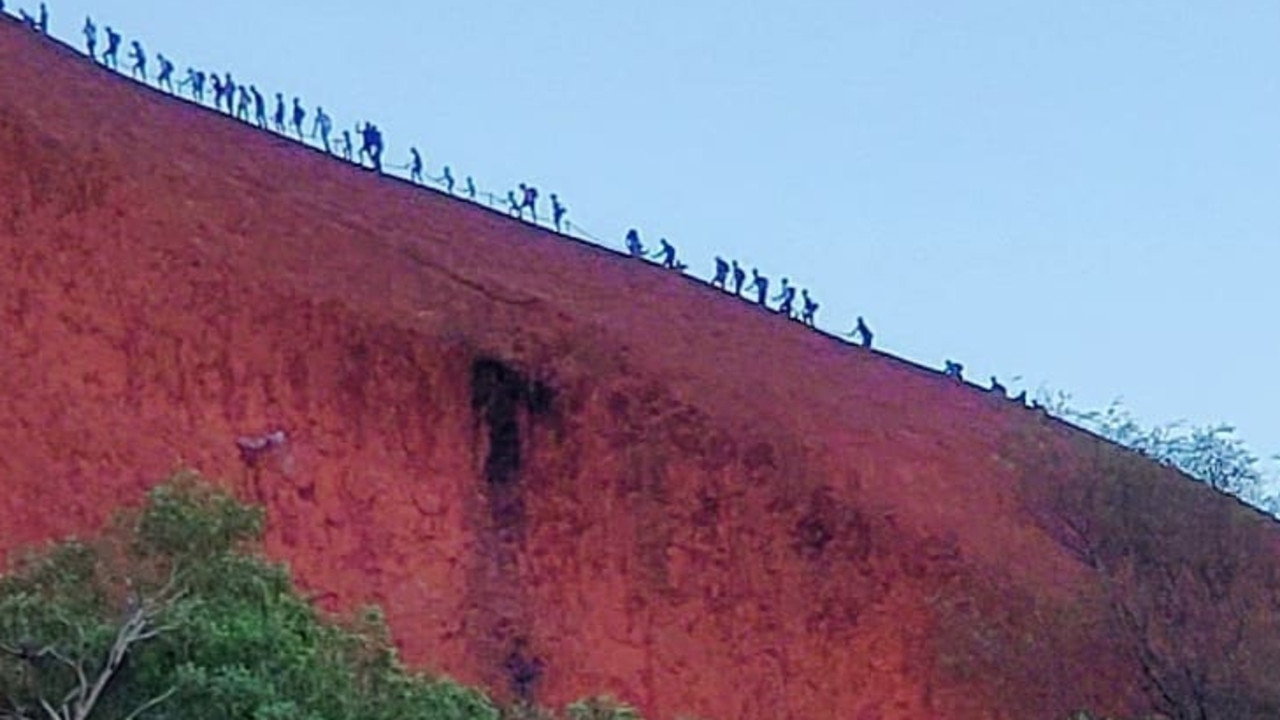
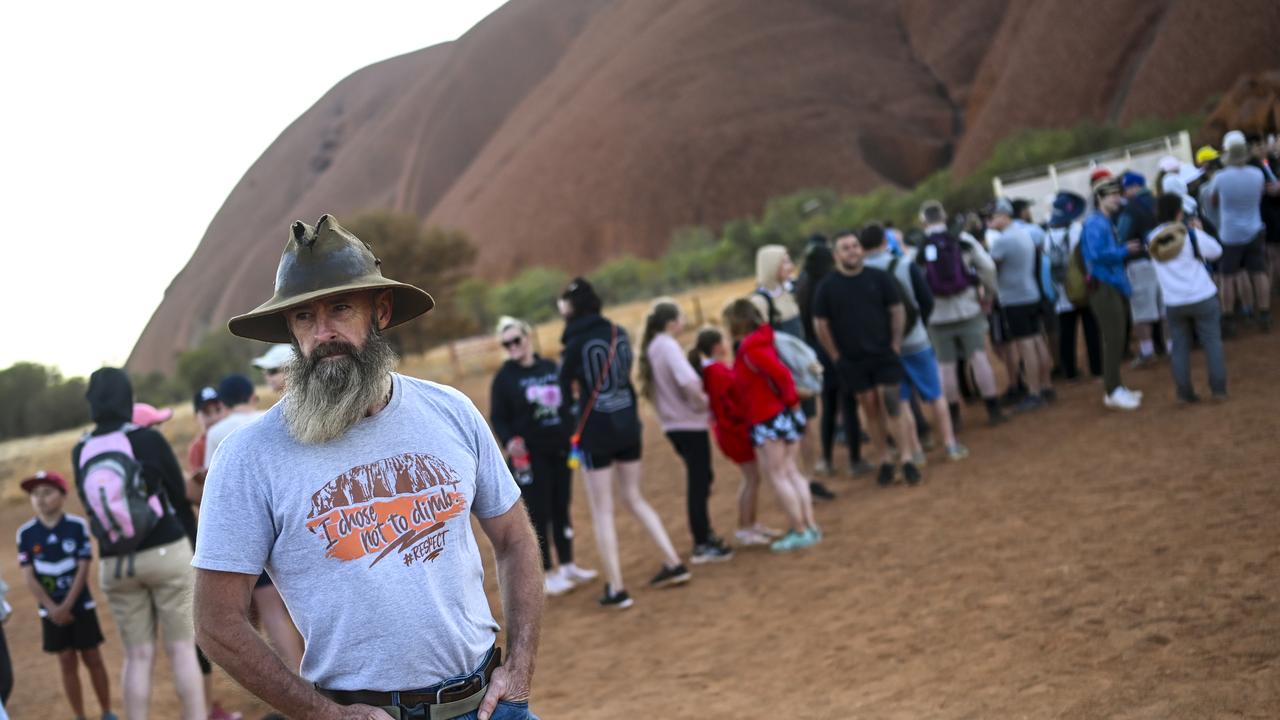
On Thursday, a clip posted on Twitter by ABC journalist Oliver Gordon showed crowds waiting at the base of the site at 7am.
The video revealed the queue snaking from the carpark all the way to the beginning of the climb, with commenters likening the crowd to a “conga line”.
It attracted thousands of views and comments, with some describing the final mad rush to conquer Uluru as “disgusting”, “selfish” and “disrespectful” to the traditional owners.
“You’d have to be really, really keen to insult and offend Traditional Owners to even consider climbing in such crowded conditions,” one Twitter user posted, while another wrote: “Can any one of these climbers give me a good and valid reason why they feel they must do this? Why should you not be utterly ashamed and embarrassed? Anyone?”
Oliver, thank you for sharing. There you have it Twitter. A conga line of schmucks and dolts.This is the Coalition’s ugly Australians. Emboldened & unrepentant.May they tear their hamstrings in the course of the climb and wait hrs for medical help to get access.
— Cara Mia (@CaraMia200) October 24, 2019
The climb was established in 1964 on the steep western face of the rock, and from October 28, the chain handhold that guided tourists up the rock for decades will be dismantled.
From tomorrow onwards, heavy fines of up to $10,000 will be introduced for anyone who ignores the new law.
Over the decades, dozens of people have died while climbing Uluru for a range of reasons, including falls, dehydration and health issues.
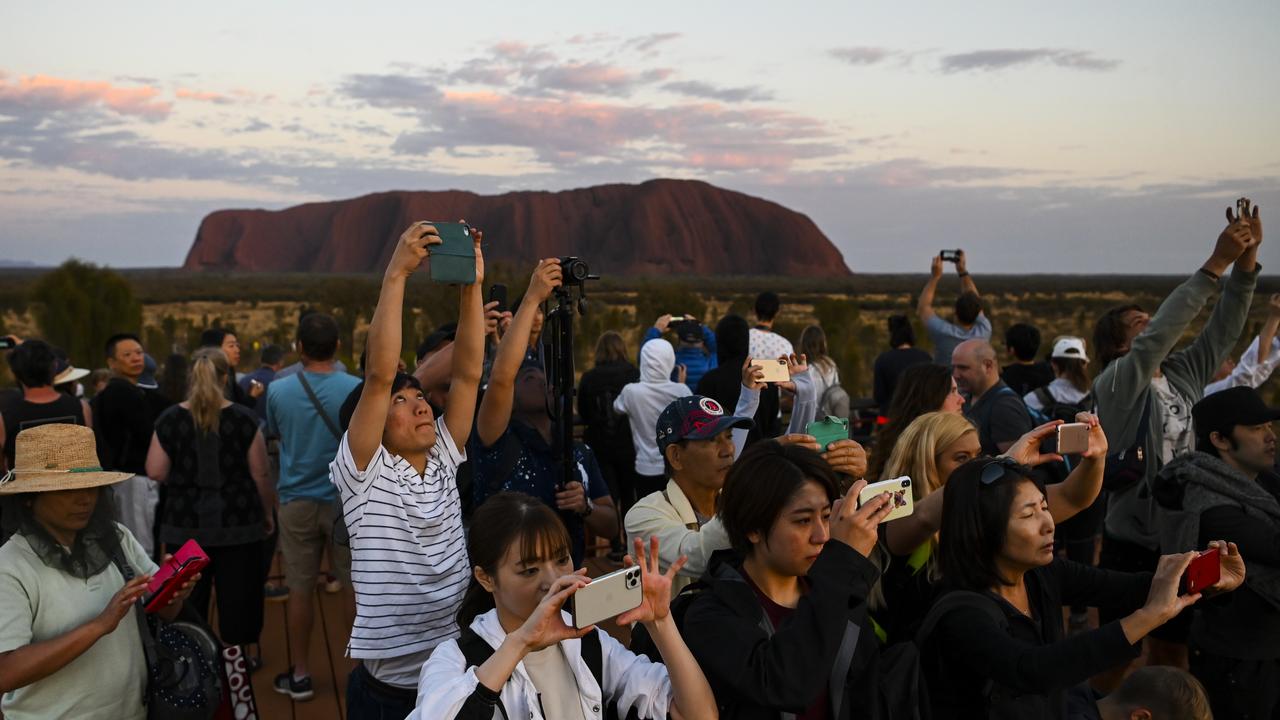
In 2018, a Japanese tourist died while trying to climb one of the steepest parts of the rock, and last month, One Nation leader Senator Pauline Hanson got stuck while climbing Uluru in protest against the ban.
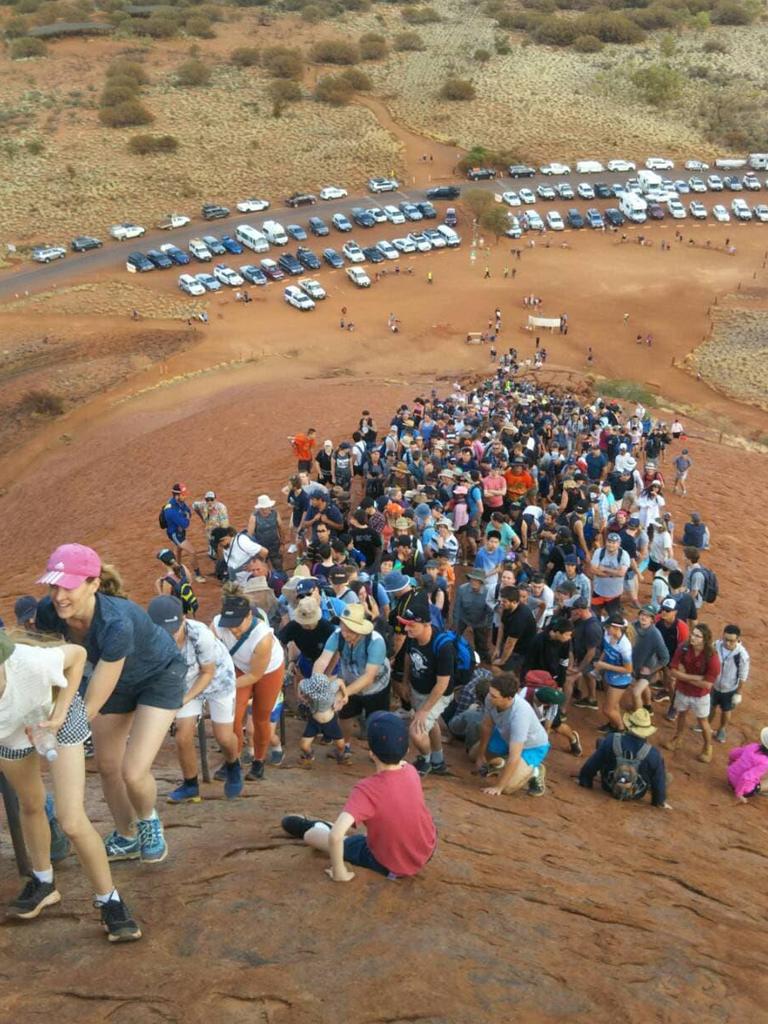
Earlier this month, a young South Australian girl fell at least 20 metres while descending from the summit after visiting the site with her parents and younger brother.
The 12-year-old lost her footing and fell on the lower section of the climb, near where the chain is located.
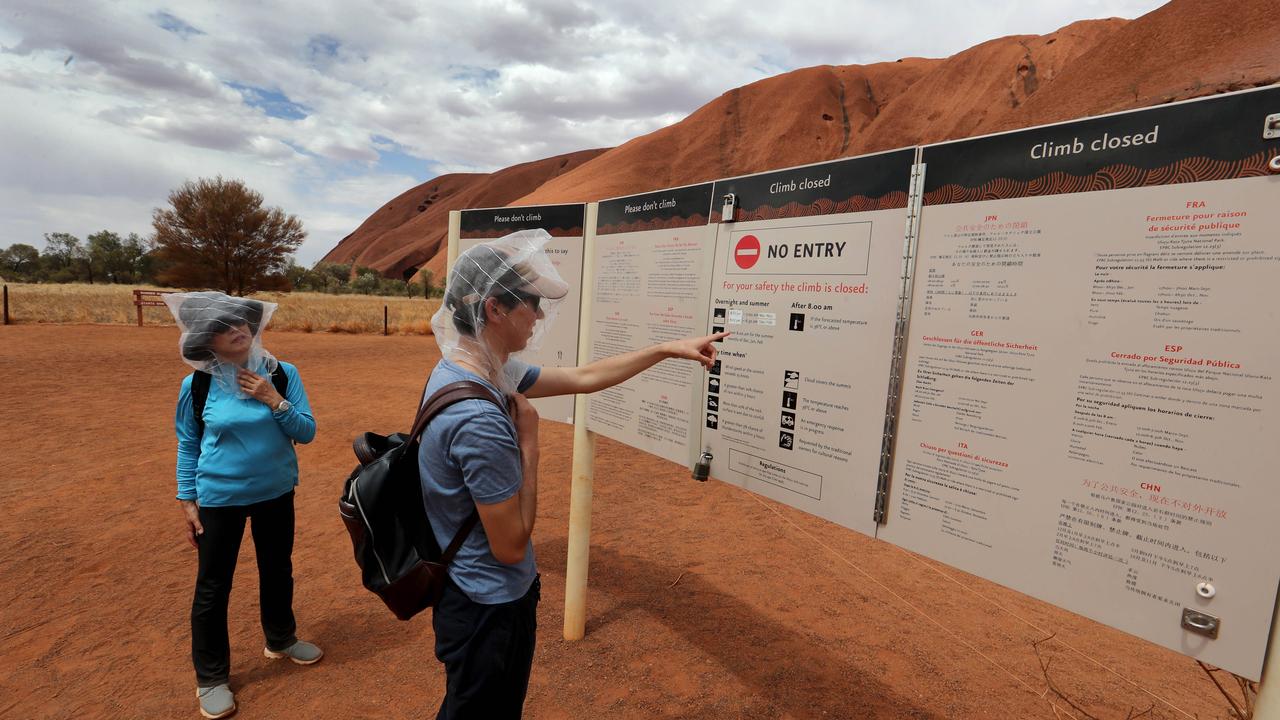
This month, Central Land Council chief executive Joe Martin-Jard told Sky News tourists had been increasingly using Uluru as a toilet.
He said that was one of the reasons behind the decision to outlaw the climb, along with the site’s cultural significance and safety concerns.
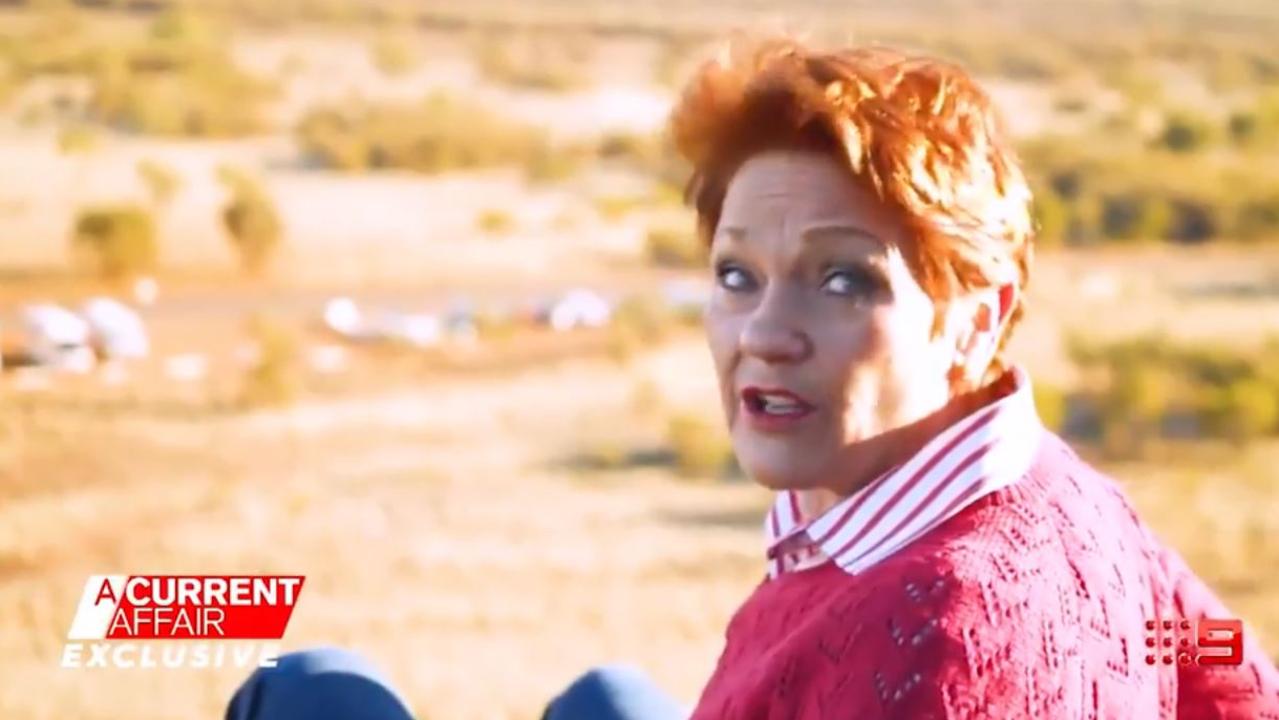
“They’ve wanted to see it closed for a very long time, for spiritual reasons, for cultural reasons, but if you speak to them they’ll also tell you that it’s for safety reasons, they’ve had to take down bodies off the rock, people have fallen off the rock and it really hurts them when they see visitors being hurt,” Mr Martin-Jard told Sky News.
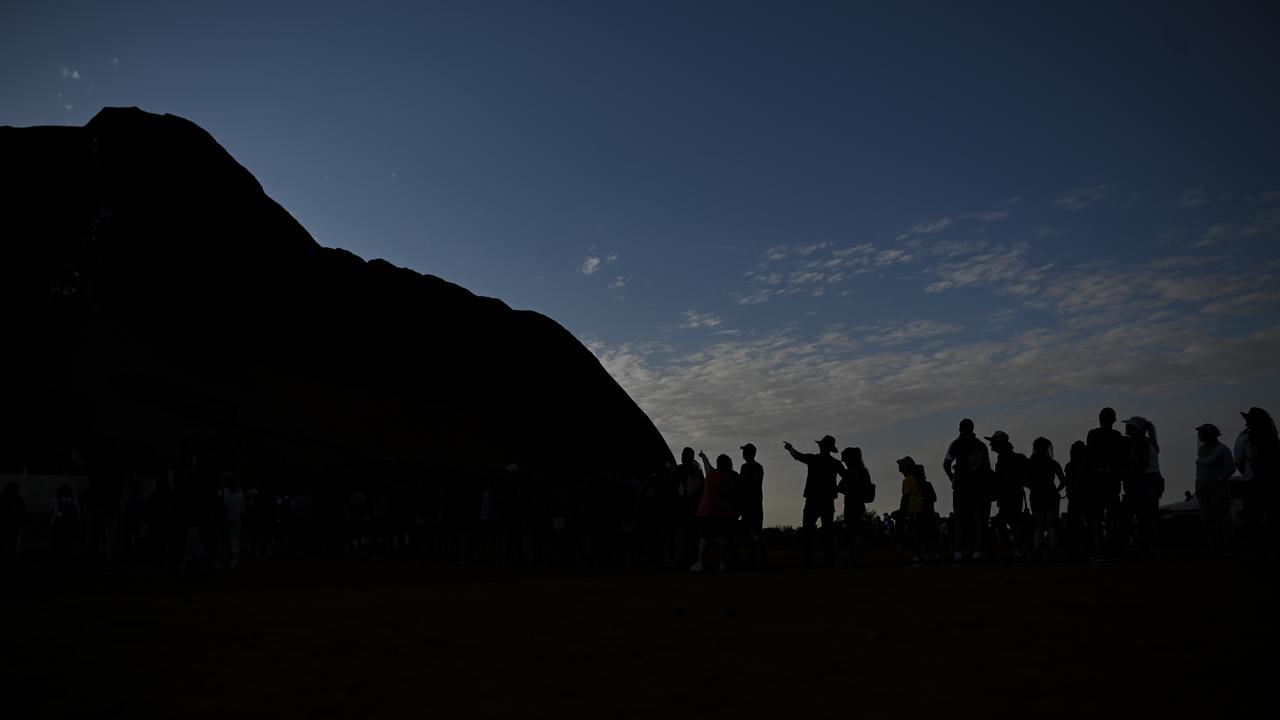

“They’re a bit disappointed with people going to the toilet once they’re up there and leaving things like children’s kimbies (nappies) behind, and when we have the rare event of rain that pee and crap flows down the rock into very fragile water holes and rock holes that animals drink from.”
— with AAP

